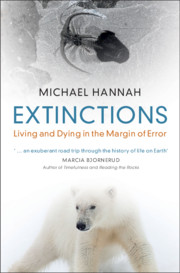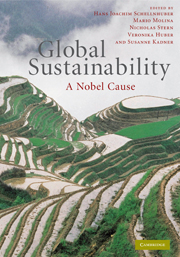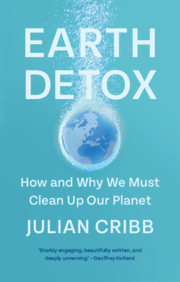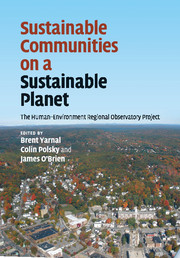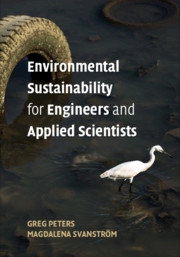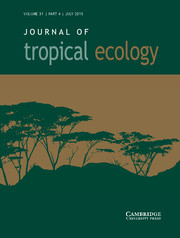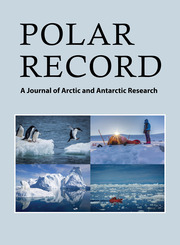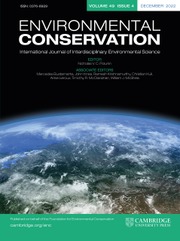Extinctions
Living and Dying in the Margin of Error
- Author: Michael Hannah, Victoria University of Wellington
- Date Published: September 2021
- availability: In stock
- format: Hardback
- isbn: 9781108843539
Hardback
Other available formats:
eBook
Looking for an inspection copy?
Please email [email protected] to enquire about an inspection copy of this book
-
Are we now entering a mass extinction event? What can mass extinctions in Earth's history tell us about the Anthropocene? What do mass extinction events look like and how does life on Earth recover from them? The fossil record reveals periods when biodiversity exploded, and short intervals when much of life was wiped out in mass extinction events. In comparison with these ancient events, today's biotic crisis hasn't (yet) reached the level of extinction to be called a mass extinction. But we are certainly in crisis, and current parallels with ancient mass extinction events are profound and deeply worrying. Humanity's actions are applying the same sorts of pressures - on similar scales - that in the past pushed the Earth system out of equilibrium and triggered mass extinction events. Analysis of the fossil record suggests that we still have some time to avert this disaster: but we must act now.
Read more- Humans are facing a major biotic crisis of our own making. Michael Hannah sets the current biodiversity crisis into the context of Earth history as told by the fossil record, helping readers fully appreciate the environmental crisis we face, and pointing the way we can avoid a mass extinction of our own creation
- Explains the concept of the Earth System as the regulator of the planet's climate and the consequences that result from its failure
- Emphasizes the importance of a diverse biosphere in maintaining the Earth System, and encourages the conservation of the planet's biota
- Stresses the importance of mass extinctions in the history of life, telling readers how mass extinctions control both the level of the planet's biodiversity and the composition of its biota
- Introduces the Anthropocene and emphasizes the damage that humans are doing to the Earth
Awards
- Winner, 2022 Choice Outstanding Academic Titles
Reviews & endorsements
'… a useful and succinct summary of the research into the reality and timing of mass extinctions from the early concepts to recent research - it brought me up-to-date with current thinking on mass extinctions. I admire his 'sceptical' stance: attempting to discriminate what a mass extinction actually is - outside the biggest three - is not as easy as has been assumed. The mass extinctions of the past clearly have relevance to the current approaching catastrophe in the Anthropocene, and the careful appraisal of exactly where we are in comparison with previous extinctions will be of great concern to those interested in the 'long view'. I particularly appreciated the focus on the notion of the interconnectedness of Earth systems.' Richard Fortey, author of Life: An Unauthorised Biography History and Trilobite: Eyewitness to Evolution
See more reviews'Despite its somber title and topic, Extinctions is an exuberant road trip through the history of life on Earth, led by a friendly and knowledgeable guide who knows all the locals along the way. Visiting so many ancestral Earthlings and vanished ecosystems is heady - and deeply humbling.' Marcia Bjornerud, Lawrence University, author of Timefulness and Reading the Rocks
'Most of life may well be extinct, because of the huge age of the Earth, but Michael Hannah shows vividly in this book that the 8.7 million species on Earth today are profoundly at risk; the lessons of the fossil record tell us what will surely happen if we continue pushing species after species to the brink.' Michael Benton, University of Bristol, author of Dinosaurs Rediscovered
'Without death, there can be no change. And, as Michael Hannah makes clear in his engaging new book, mass extinctions on various scales have been key shapers of the world as we know it. Had the dinosaurs not abruptly disappeared, we humans would not be here today. But as Hannah also shows, there is something dreadfully menacing about the massive species loss and climate change the world is currently experiencing, making his book a balanced yet deeply unsettling account of what humans are unwittingly doing to the world.' Ian Tattersall, American Museum of Natural History, co-author of The Accidental Homo sapiens
'An accessible and authoritative guide to the past, present, and future of extinctions. Michael Hannah dives into the fossil record and surveys the great mass extinctions of Earth history, from the death of the dinosaurs to the demise of the woolly mammoth, and explains how they are relevant to understanding the predicament we are in today, and to plotting a better future.' Steve Brusatte, University of Edinburgh and New York Times/Sunday Times bestselling author of The Rise and Fall of the Dinosaurs
'Michael Hannah's book expertly examines the geological record of mass extinction events. It asks us to consider whether we wish to join asteroid strikes and massive volcanic eruptions as causes of mass extinction. Or whether we can change our relationships with the wonderful diversity of life around us to avoid such an ignominious outcome.' Mark Williams, University of Leicester
'… measured, thought-provoking analysis.' Andrew Robinson, Nature
'Hannah's conclusion seems to whisper of impending disaster, delivering a highly effective 'Yikes!' moment. This book offers a very readable description of known extinctions for anyone interested in past life. At the same time, it seems to have all the elements of a new literary genre: scientific nonfiction - science noire. The final paragraphs are written as if there will be no sequel … Highly recommended.' M. S. Zavada, Choice
'Accessible overviews that synthesise wider patterns and processes of extinction are still surprisingly thin on the ground, and so Hannah's contribution is to be welcomed.' Samuel Turvey, The Holocene
'Despite the sobering topic, Hannah's storytelling is exceedingly pleasant and never feels dry or moralizing. Overall, 'Extinctions' offers the reader a fascinating perspective on biodiversity losses and a renewed sense of urgency regarding the ongoing biodiversity crisis.' Nora Haack, Community Ecology
Customer reviews
Not yet reviewed
Be the first to review
Review was not posted due to profanity
×Product details
- Date Published: September 2021
- format: Hardback
- isbn: 9781108843539
- length: 262 pages
- dimensions: 236 x 160 x 19 mm
- weight: 0.52kg
- availability: In stock
Table of Contents
Preface
Acknowledgements
Further reading
Introduction
1. The Anthropocene and the Earth system
2. A short detour: the fossil record and the geological time scale
3. The origin of animals and the emergence of the Earth system
4. Documenting ancient biodiversity
5. Mass extinctions – the basics
6. Causes of the End-Permian and End-Cretaceous extinction events
7. Time heals all – recovering from a mass extinction
8. The late Quaternary megafaunal extinctions
9. Surviving the Anthropocene
Further reading
Index.
Extinctions Book Trailer
Are we now entering a mass extinction event? What can mass extinctions in Earth’s history tell us and how does life on earth recover from them? How can we avoid a disastrous human-made mass extinction event?
An Interview with Michael Hannah author of Extinctions
Sorry, this resource is locked
Please register or sign in to request access. If you are having problems accessing these resources please email [email protected]
Register Sign in» Proceed
You are now leaving the Cambridge University Press website. Your eBook purchase and download will be completed by our partner www.ebooks.com. Please see the permission section of the www.ebooks.com catalogue page for details of the print & copy limits on our eBooks.
Continue ×Are you sure you want to delete your account?
This cannot be undone.
Thank you for your feedback which will help us improve our service.
If you requested a response, we will make sure to get back to you shortly.
×
